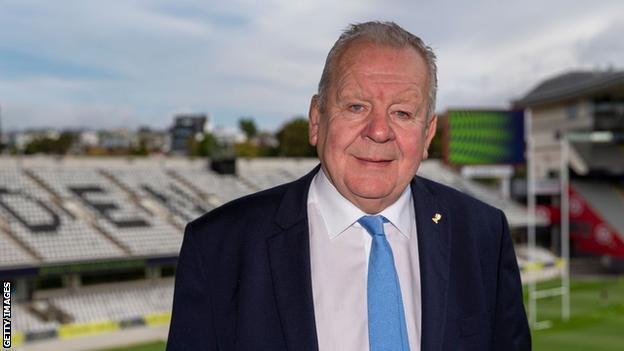nleashing Opportunities: Rugby World Cup 2023’s Promise to Tier-Two Nations
Embracing the Tier-Two Triumphs
In the aftermath of the Rugby World Cup 2023, the resonance of tier-two nations’ performances reverberates through the rugby community. Sir Bill Beaumont, the chairman of World Rugby, emphatically declares a commitment to providing “greater certainty and opportunity” to these emerging powerhouses. As the only team from outside tier one, Fiji’s spectacular journey to the quarter-finals in France has ignited discussions about a new global calendar, ushering in hopes for more competitive games.
Decoding the Tiers: What Sets Them Apart?
Tier One: The Elite Battleground
Tier one comprises the European powerhouses participating in the Six Nations—England, Scotland, Wales, Ireland, France, and Italy. Additionally, the four southern hemisphere titans—Australia, New Zealand, South Africa, and Argentina—lock horns in the Rugby Championship. These annual tournaments form the apex of international rugby, showcasing the crème de la crème of the sport.
Tier Two: The Up-and-Coming Challengers
Contrarily, every other nation gracing the World Cup, absent from these top-level tournaments, falls under tier two. These nations, despite not partaking in the elite annual competitions, bring their unique flair and tenacity to the Rugby World Cup stage.
A Tapestry of Triumphs and Challenges
The fortunes of tier-two nations in France have been as diverse as the cultures they represent. Portugal etched history with their first-ever Rugby World Cup win against Fiji, a testament to the rising prowess of these emerging teams. On the flip side, challenges loomed large as Romania faced consecutive defeats conceding over 70 points, Namibia endured heavy losses, and Chile grappled with defeats that saw them concede more than 40 points in each match.
Fiji’s Remarkable Journey
Amidst the ebb and flow of victories and defeats, Fiji emerged as the flagbearer for tier-two nations. A stunning upset against Australia propelled them to the quarter-finals, showcasing resilience despite narrow defeats to Wales and Portugal. Sir Bill Beaumont bids farewell to 12 teams but ensures that the likes of Portugal, Samoa, Tonga, Uruguay, Chile, and Georgia are not forgotten.
A Vision for the Future: Reimagining the International Calendar
Sir Bill Beaumont, a former England captain, lays out a compelling vision for the future. The focus is on crafting an international calendar that fosters regular high-level competition for tier-two teams. This, he believes, is pivotal in creating a Rugby World Cup in 2031 that is fiercely competitive, unpredictable, and a delight for fans, broadcasters, and commercial partners alike.

World Rugby’s Weekly Media Conference Insights
Michel Poussau, the tournament director, pays homage to the performance unions, especially highlighting Portugal’s historic victory against quarter-finalists Fiji. Despite the challenges, including the shadow of the Covid pandemic, tier-two nations have left an indelible mark on the world stage.
Spectatorship and Viewership Milestones
As the Rugby World Cup reached its zenith, with 40 pool matches captivating 1.84 million fans, an 8% increase from the 2019 tournament in Japan, the global audience remained glued to their screens. A cumulative television audience of 164 million in France alone underscores the event’s global appeal.
Looking Ahead: World Cup 2027 and Beyond
Poussau paints an optimistic picture of the future, assuring that tier-two nations will receive greater certainty and opportunity to shine on the world stage. The anticipation for Rugby World Cup 2027 is palpable, with the promise of witnessing extraordinary feats from these emerging rugby powerhouses.
The Refereeing Lineup for Quarter-Finals
In a pivotal announcement, the match officials for the quarter-finals are unveiled. England’s Wayne Barnes takes charge of the Ireland vs. New Zealand clash, ensuring a fair and competitive encounter. Ben O’Keeffe from New Zealand officiates the France vs. South Africa showdown, while Mathieu Raynal and Jaco Peyper preside over the England vs. Fiji and Wales vs. Argentina matches, respectively.
In conclusion, the Rugby World Cup 2023 stands as a testament to the evolving landscape of international rugby. Tier-two nations have showcased their mettle, sparking a collective commitment from World Rugby to nurture and elevate their status. As the tournament unfolds, the world eagerly awaits the realization of Sir Bill Beaumont’s vision—a Rugby World Cup that epitomizes competition, unpredictability, and the triumph of the underdog.